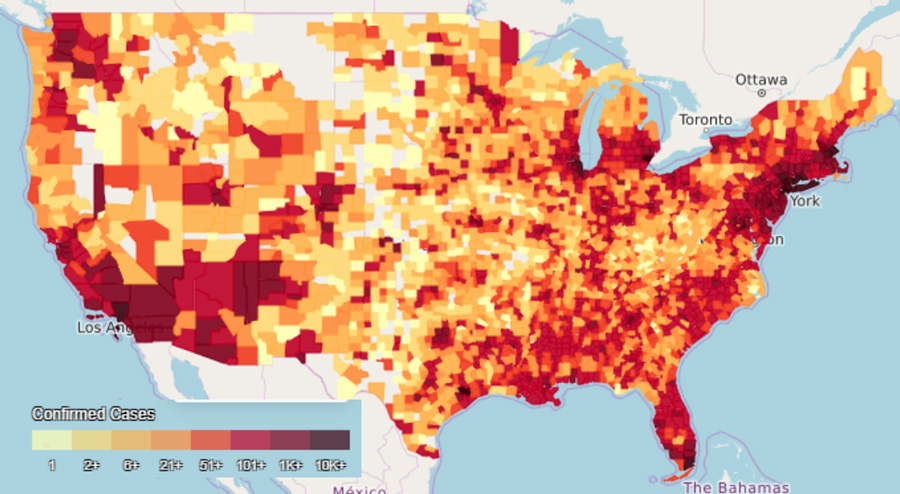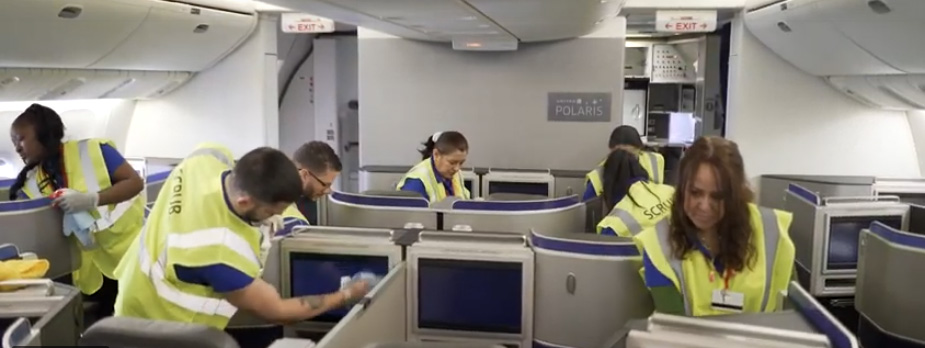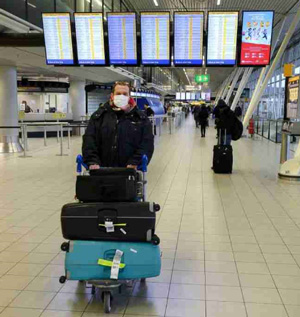As the tour coordinator for K-House, I have a keen interest in international travel. Right now, the obvious question everyone is trying to answer, including myself, is whether it’s safe to travel when there are regions still dealing with coronavirus. I never want to steer people into harm’s way, so that question is especially important.
To find an answer, I’ve been constantly monitoring government sites, news releases, selected websites and checking with our contact in Israel. There may be some things you have not heard yet, so I’d like to pass them on to you. First, allow me to paint a picture of the situation as of mid-May.
The Landscape Today
A leader in the travel industry, Paul Metselaar, describes what’s happening today like this:
“I left my law practice 36 years ago to take over a small, family-owned travel agency and since then have experienced multiple crises, including two Gulf Wars, the SARS pandemic, 9/11 and the global financial crisis. But the Covid-19 pandemic we are all now struggling with is the most devastating event to ever befall the travel industry.”1
The Numbers
According to the U.S. Centers for Disease Control (CDC), the trend for confirmed COVID-19 infections in the U.S. shows the curve is heading down, with the peak being in early April. Even with a sharp increase in testing, the numbers for new infections is going down. The number of deaths from the virus are also declining, having peaked in mid-April.2

That’s looking at the national numbers. When the numbers for counties are examined, it’s clear that metropolitan areas have been hit much harder than other communities. More crowds in a city, and public transportation (sometimes without an increase in sanitation efforts) seem to be a big part of the explanation for that.
While Chicago’s Cook County has recorded about 65,000 cases (1.2% of the population) and nearly 3,000 deaths, the county where our U.S. offices are located, (Kootenai County, Idaho) has 66 confirmed cases (0.041% of the population) and no deaths. In fact, one could travel from our office for over an hour in any direction and find only one county that has had any deaths, and that would be Spokane County, Washington. They’ve had 412 cases (0.08% of the population) and 31 deaths.3 A higher concentration of people means a higher risk.
The Situation In Israel
The U.S. State Department routinely issues travel advisories using a four-level system.
Level 1 Exercise normal precautions
Level 2 Exercise increased caution
Level 3 Reconsider travel
Level 4 Do not travel
Travel to Israel is currently rated at Level 3-Reconsider travel. Typically, Israel is listed as Level 2-Exercise increased caution. The change is based on local policies such as a fourteen-day quarantine for anyone arriving from outside the country. Compare this to New Zealand and Australia which are both listed as Level 1-Exercise normal precautions (even though Australia has a travel ban in force that will last “for the foreseeable future”.)4
Israel’s coronavirus cases peaked in late April at 327 confirmed cases and fell sharply in May. They currently experience two to four new cases per day.5 Their success is chiefly due to shutting down the country, isolating the population at home, and restricting international travel. Non-citizens are banned from entering Israel at this point, but the Prime Minister has recently stressed “the need to renew flights to the United States.”6

The Remedial Work
Now to the news you may not have seen. There are significant changes being made for travelers.
When most people think of safety while traveling overseas, they put the risk of infection while on a plane high on their list. They probably believe one of the biggest issues is a recirculated air supply, but they would be wrong. The air filtration system on planes includes a HEPA filter to screen out particles, including those that carry viruses and bacteria. The good news is that the dirtier a HEPA filter gets, the more efficient it becomes in blocking those particles.

How often is the air recycled? During a flight, the air is changed out approximately 15-30 times per hour.7 Studies have shown that this makes air on a plane better than air in an office building8. If you still have doubts, just aim the air nozzle at yourself and you will create another barrier to catching something from the cabin air.
 We have advised people in the past that it’s a good idea to use an antiseptic wipe to clean anything you might touch in your seating area. Since the coronavirus appeared, airlines have begun to give more attention to those areas. United Air now requires a thorough cleaning of a plane each time it lands, including disinfecting tray tables and armrests, as well as common areas such as bathrooms and galleys.8
We have advised people in the past that it’s a good idea to use an antiseptic wipe to clean anything you might touch in your seating area. Since the coronavirus appeared, airlines have begun to give more attention to those areas. United Air now requires a thorough cleaning of a plane each time it lands, including disinfecting tray tables and armrests, as well as common areas such as bathrooms and galleys.8
You should still do your own cleaning, though (if you’re on an aisle, don’t forget the headrest where people passing by may place their hand in order to steady themselves.) To that end, United Airlines and others are providing individually wrapped hand sanitizer wipes to each person as they board.
Airlines are also reducing the number of places a passenger has to touch; from kiosks for baggage checking, to bathroom soap dispensers. They are reducing the number of passengers and seating them with as much distance as possible from other passengers. These companies are doing what’s needed to keep their customers both safe from infection and willing to board a plane.
Israel has kept infections low, and they are making plans to keep them low while not interfering with the daily life of others. Now, and in the future, they will isolate ‘hot spots’ of infections in order to prevent the virus from spreading. The most recent actions have been taken to isolate Ultra-Orthodox neighborhoods with escalating infections.9 This approach will make it much less likely that they will have to lock down the nation again.
At hotels in Israel, like other parts of the world, much attention has been given to viral safety. The Ministry of Health has issued minimum standards for cleaning rooms and common areas. Some hotel chains have secured an extra supply of cleaners in order to ensure they will be able to comply with the new requirements for disinfecting.
Buffets are a wonderful dining experience in Israel, but they will have different routines now. Along with more frequent cleaning of surfaces, patrons may be asked to wear gloves and a mask while going through a buffet area to create their meal. There is a move in some hotel chains to feature more individual portions, packaged products, and live cooking stations.10
Like Israel, future responses to coronavirus will most likely be on a local rather than national level. There will be widespread testing for the presence of virus or antigens. There will be a continuing emphasis on masks and social distancing. The concern for rigorous cleaning of surfaces may fade, based on recent CDC findings that touching a surface is not likely to cause infection.11
The Considerations
These trends are encouraging. There are fewer infections by the day, more testing is available, and test accuracy is being monitored. The travel industry is doing everything possible to keep risk during travel lowered, and governments are creating strategies to avoid future lockdowns.
The challenge is that the coronavirus is pretty infectious, not as bad as first thought, but still a challenge. The trend is good to see, but will there be another outbreak? How widespread would it be, and could it be worse? Only the Lord knows the future. The models and projections have proven faulty again and again, so they can’t be trusted to tell us much at this point.
The other challenge is our fear, and that’s one we must confront directly. God intended fear to be an early alert system, a first step when we need to prepare for trouble. He never intended to have our fears dominate our thinking and actions. The core issue is captured in Chuck Missler’s reflection on trusting God. He often said that every day the Lord finds different ways to ask us, “Do you trust me?” If we trust the Lord, we can use fear correctly, letting it trigger us to run to Him for wisdom and deliverance.
I’m not suggesting that we be cavalier about the coronavirus. If we shrug off the potential trouble it presents by saying, “I’m not going to worry about that; the Lord will protect me. I trust God.” then we are in danger of testing God, and maybe getting sick. As Jesus said in Matthew 4:7, “It is written again, ‘You shall not tempt the Lord your God.’”
Here's an illustration of how to respond. If you would like to visit Israel, the right response is to ask God for His wisdom (James 1:5). After that prayer, weigh out the personal risks and rewards of traveling to Israel. We’ve covered the risks above. The rewards include the opportunity to see the land and the history, the people and the beauty, and to consider what God has done as you see places where He acted to accomplish His will. Such a tour can lead to deep, personal spiritual growth—a fresh and more intimate walk with God.
One risk was not discussed earlier, so I’ll mention it now: a financial loss if there is a cancellation. Israel instituted a quarantine just weeks before our Spring tour was to begin. Obviously, we had to cancel, but after several weeks of suspense, people on that tour were able to either transfer to the October tour, or receive a full refund. Usually, a full refund for the tour is available up to 65 days prior to departure. After that a cancellation fee applies until the 45-day mark, when no refunds can be made. In this case, the Lord orchestrated the process so the refunds could be made, avoiding the potential losses. With the lessons learned from the Spring tour, as well as relying on the Lord, the risk of financial loss has been greatly reduced.
The outbreak is about three months old, and we are over four months away from our October tour. With more known about the virus, and time to watch developments, we should have a good sense of the direction things are going much sooner than we did last time. All of that allows us to be wiser and more proactive because we are better informed.
The Conclusion
So, circling back to the original question, is it safe to travel when the coronavirus is still a problem? The answer would be that traveling this week is not recommended because, although we are seeing a decline in the outbreak, there are still many restrictions in place.
However, long before October, restrictions will be lifted in most places, even while vigilance continues. That means the risks for traveling will be back at, or close to, normal levels. In fact, because of the new standards of sanitation, traveling might even have less risk of infection by any virus than before the outbreak.
Based on that assessment, when people ask about touring Israel, I’m ready to say that it’s reasonable to register and start making arrangements for a special journey. In my mind, the evidence shows that the potential blessing far outweighs the concern. Of course, events and circumstances change, so there must be an on-going assessment of what’s happening, but I’m optimistic. I hope this helps you if you’re thinking and praying about travel to Israel.

Notes:
3 https://infection2020.com/, 5-21-2020.
4 https://www.news.com.au/travel/travel-updates/health-safety/coronavirus-restrictions-when-domestic-international-travel-will-be-allowed/news-story/6dbdd7906cb244ccba75731453bc5ec1, 5-21-2020
5 https://covid19.healthdata.org/israel, 5-21-2020.
6 https://www.timesofisrael.com/netanyahu-israel-wants-to-join-travel-pact-for-countries-beating-back-virus/, 5-8-2020.
9 https://www.timesofisrael.com/the-shuttered-neighborhood-next-door-touring-one-of-israels-virus-hotspots/, 4-28-2020





